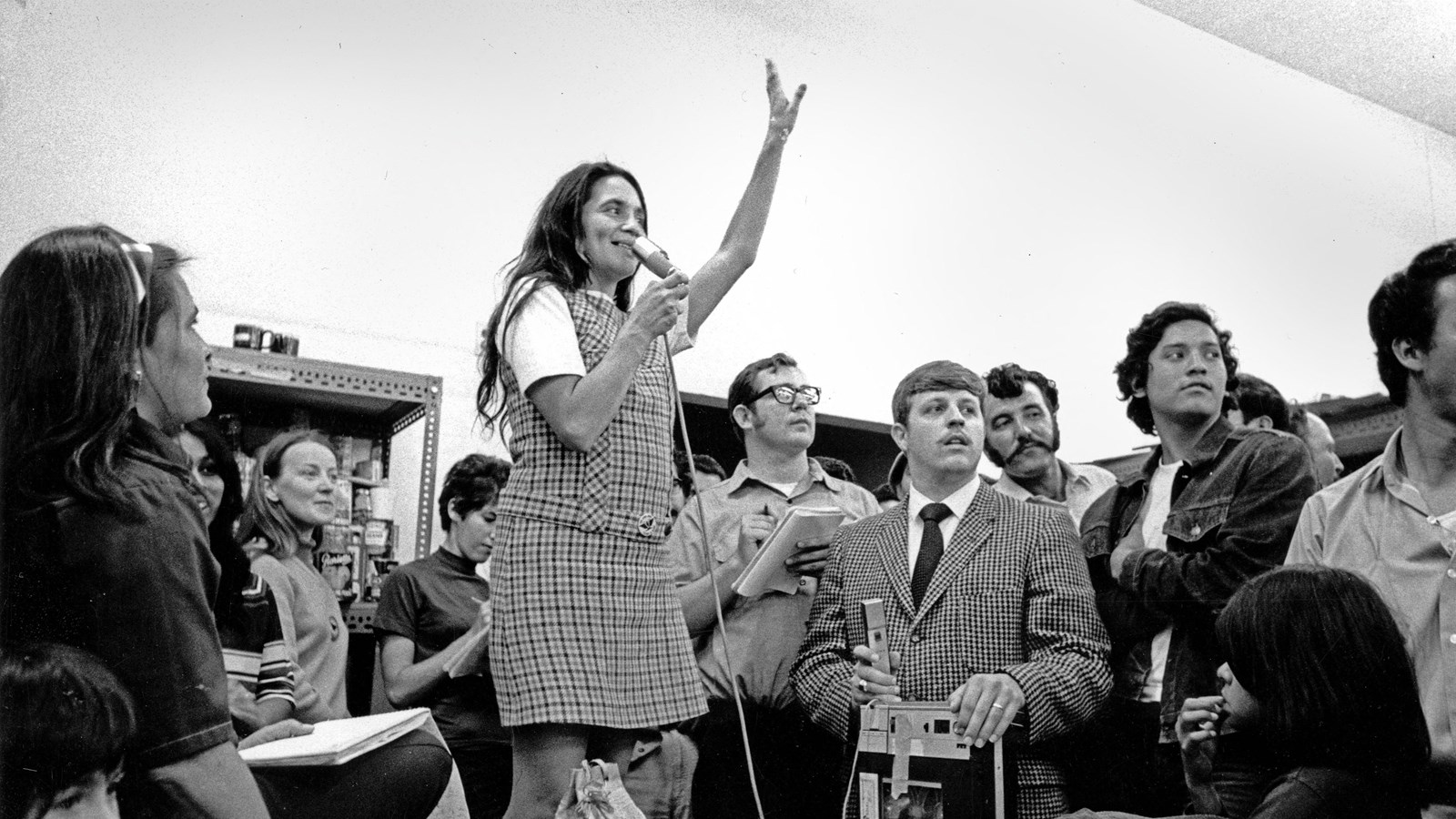Last updated: July 23, 2024
Place
Dolores Huerta's House

Bob Fitch Photography Archive, Department of Special Collections, Stanford University Libraries
Audio Description, Cellular Signal
Dolores Huerta lived in this house while she worked with Cesar Chavez to improve conditions for farmworkers.
This building is a private residence. Please respect the privacy of the family who lives here. Do not enter the fenced area.
Dolores Huerta
Dolores Huerta grew up during a time of economic and racial injustice in Stockton, California. She became a schoolteacher but couldn't stand seeing students come to class hungry. When she was 25 years old, famed community organizer Fred Ross recognized her talent and she became an organizer with the new chapter in Stockton of a Latino civil rights group called the Community Service Organization (CSO). Another CSO organizer was Cesar Chavez.
Cesar and Dolores decided to create a farm workers union. Dolores resigned from the CSO in 1962 to help create the National Farm Workers Association (NFWA) along with Cesar, Gilbert Padilla, Manual Chavez, Julio Hernandez and other early organizers. Dolores, Cesar and Gilbert drew on the community organizing principles they learned in CSO, convinced that it would take more than a union to help farm workers overcome the crippling dilemmas they faced at both the work site and in their communities; it would take a movement.
In its early years, NFWA organized workers by providing them with services. By 1965, the NFWA had 1,200 member families.
When Filipino union leader Larry Itliong reached out to Cesar, encouraging the NFWA to join the Filipinos' strike. Dolores strongly encouraged NFWA members to join the strike. She spent decades leading strikes, helping to organize boycotts, negotiating union contracts and lobbying at the state and national capitals. She was arrested more than two dozen times.
When Cesar conducted his second public fast in Phoenix in 1972, after Arizona passed a law banning farm worker strikes and boycotts, some union supporters said the growers and their allies were too powerful to overcome-"No se puede" ("No, it can't be done)," they argued. Dolores replied "¡Si se puede!" ("Yes, it can be done!"). She popularized the slogan during the UFW campaign in Arizona, and it has been adopted by people fighting for justice around the world.
Today, Dolores Huerta continues fighting for the rights of farm workers and equal treatment of women and other underrepresented groups.
